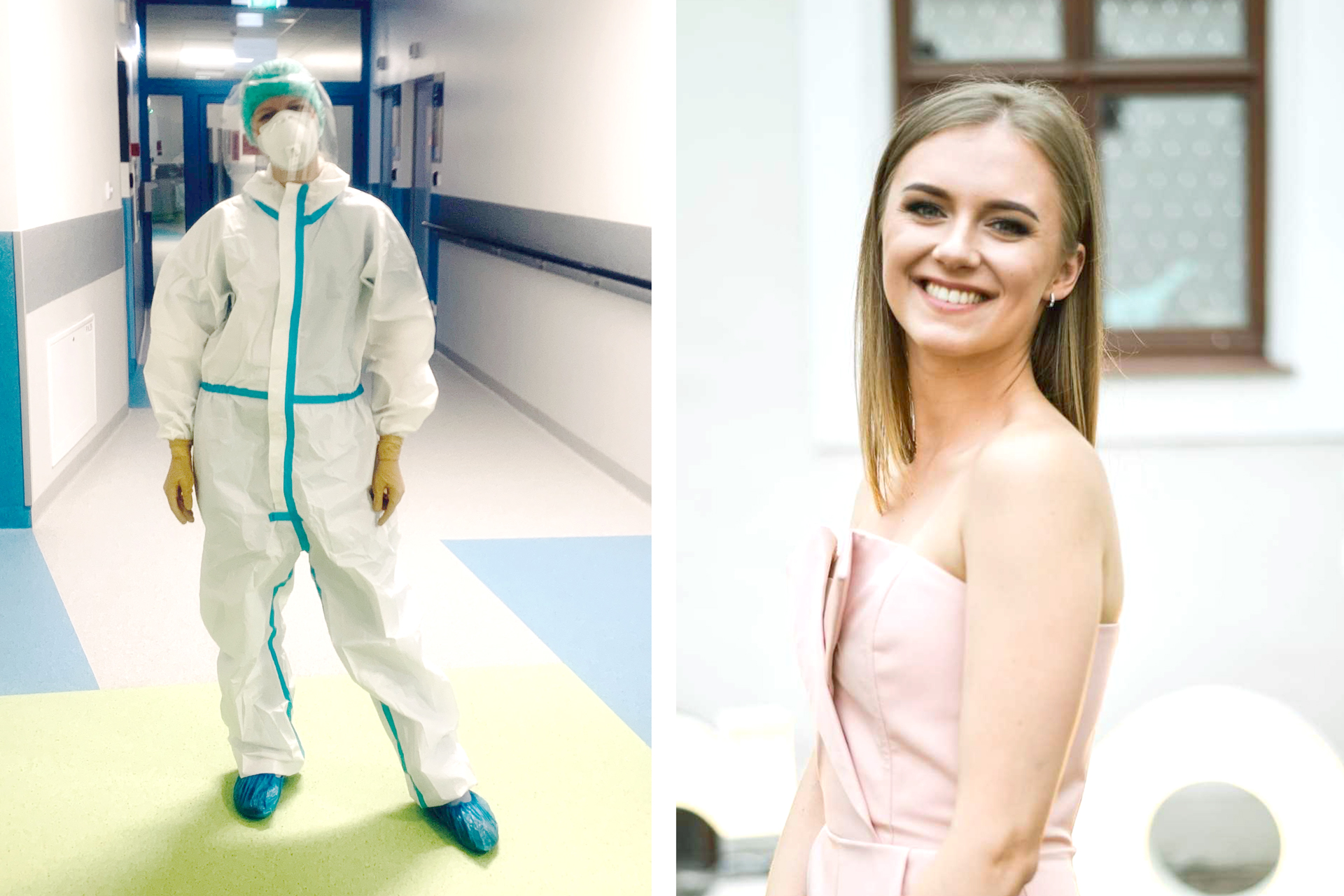Resident doctor of VU Faculty of Medicine working in the COVID department: "It hurts to feel distrust of science and medicine, because we will overcome the virus only when united"
 Residents of the Faculty of Medicine of Vilnius University (VU MF), regardless of their field of residency studies, have recently been working mainly with patients who have contracted COVID-19. Residents of various specialisations are facing challenges during this difficult period of the pandemic, when alarming numbers of new cases of infection and victims are observed with great anxiety on a daily basis. Rūta Jakimavičiūtė from Vilnius, who is a second-year student at the VU MF chemotherapy oncology residency programme, agreed to tell us about her experiences.
Residents of the Faculty of Medicine of Vilnius University (VU MF), regardless of their field of residency studies, have recently been working mainly with patients who have contracted COVID-19. Residents of various specialisations are facing challenges during this difficult period of the pandemic, when alarming numbers of new cases of infection and victims are observed with great anxiety on a daily basis. Rūta Jakimavičiūtė from Vilnius, who is a second-year student at the VU MF chemotherapy oncology residency programme, agreed to tell us about her experiences.
Because of the pandemic, that has swept the world and our country, residents today must know almost all fields of medicine, regardless of their experience and skills. As a specialist in chemotherapeutic oncology, can you tell us where are you working now?
I chose to become an oncologist precisely because I like to go into details and ask questions like “how and why”. Cancer biology is an area that I am very curious about, and curiosity leads to daily improvement. I have also already experienced that my empathy and communication skills help seriously ill patients to better adapt to the disease, understand it, and become less worried about it.
My sites where I do my residency have been changing. Beginning in my third year of study, I hope to move permanently to the National Cancer Institute. However, I am currently working in the First COVID Department of VU Hospital Santaros Clinics. This is my third month spent working with this viral infection.
The fact that I have been changing study places, departments, people, illnesses and patients probably speaks to my ability to adapt very quickly to work in a special department. The team helped; for example, my friends who worked here before told me all the important tricks how to use some appliances to ensure more effective and faster work process.
Before that, I worked for the Infectious Diseases Corps in the summer of 2020. At that time, the numbers of patients infected with coronavirus were lower. I had more time to learn everything. I went back to the reality of COVID last December. I was scared because the department had changed dramatically. Patients actually suffocate from a lack of oxygen while you stand there and do not know how to help them, because the Resuscitation and Intensive Care Departments are already full. Nevertheless, we all tried as best as we could. The help of the specialists on duty in the other departments was very important, because we had insanely difficult cases.
What experience have you gained working in this department? Will it be useful in your work in the future?
I have realised that in medicine one cannot be a lone soldier. I will never forget the feeling when patients, despite our astronaut-like PPE, see you smiling. In addition, everyone feels so much better when you say something comforting to him or her. I will never forget that. The biggest challenge is to convince patients who are very afraid of suffocating that everything will be fine if they lie on their stomach and breathe oxygen. It takes a lot of effort and empathy.
What inspires you in these circumstances and encourages you not to give up?
I am most inspired by my co-workers. One of them, who is an emergency physician, as he accepted a patient one night, said energetically and with a rather combative intonation – "Let's hold on!” I realised that there was no other way out. We must all stay strong. We will rest later.
I also want to thank the volunteers. Students keep coming to help. Weekends, when the whole department is hanging on by a thread, are especially difficult for us. You cannot imagine how important it is when someone comes to help you! In addition, I derive a lot of hope from the knowledge that a motivated generation of graduates of the VU Faculty of Medicine are following us.
What would you say to those who are sceptical about the threat posed by the pandemic or about the COVID-19 vaccination?
I have already been vaccinated. I no longer have the patience to tilt at windmills and prove something to someone. I no longer read the press articles or watch TV about these topics and I no longer argue with people who do not know elementary biology. I know everything is shrouded in scepticism. Mistakes happen everywhere. However, when I travel, I do not try to tell aeroplane pilot how to pilot a plane. It really hurts to feel that distrust of science and medicine, the experience gained over the long history of human science and practice. I still have patience, though. I hope we will all continue to have it. Only together, as a society will we overcome the virus.